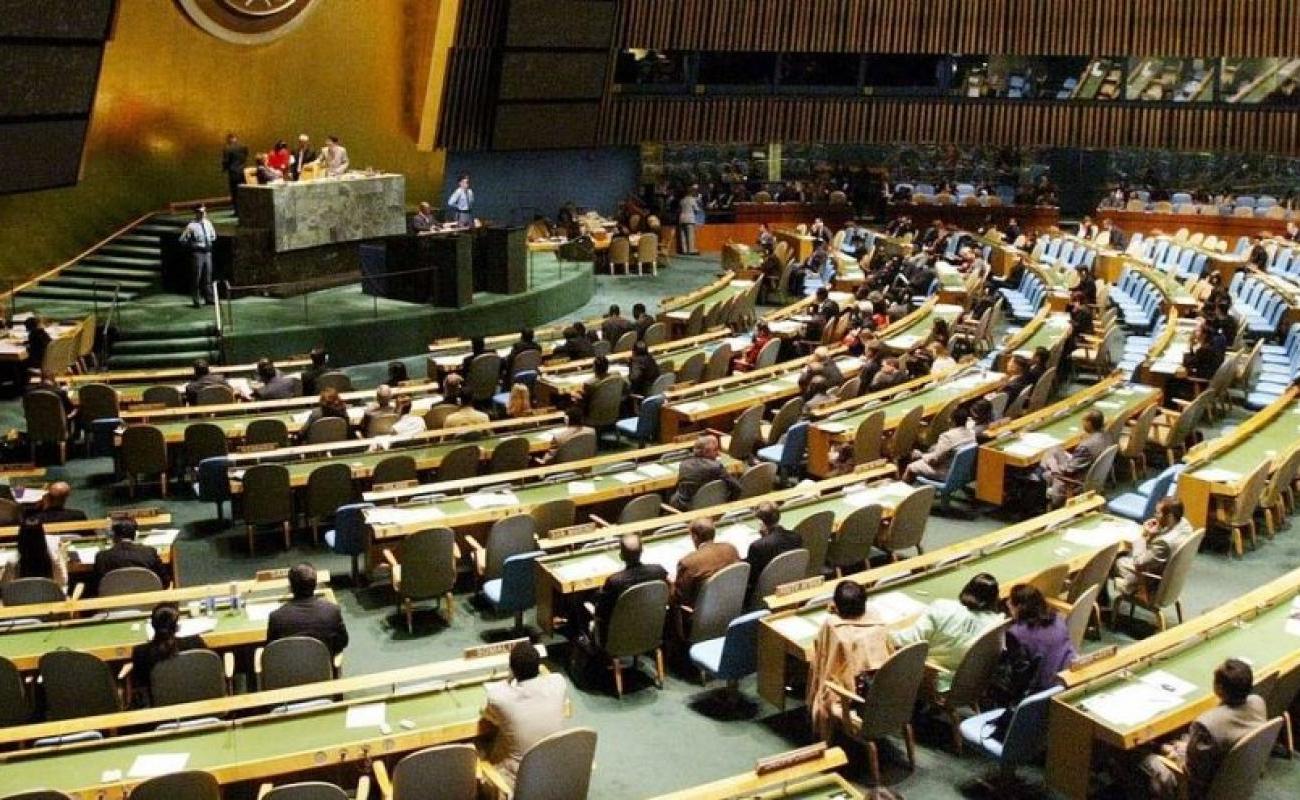A sign of great change. Which means excluding Russia from the UN Human Rights Council

"The war in Ukraine, which led to the suspension of Russia's membership in the Human Rights Council, is exacerbating global differences between different groups of countries, especially between China and the United States. So, in a sense, voting at the United Nations is a small bell for future global changes".
The first conclusion. Withdrawal from the Human Rights Council will weaken the informational influence of the Russian Federation
The Human Rights Council (HRC) is a specialized body within the United Nations system. HRC resolutions are optional and recommended in nature. Therefore, the exclusion of the Russian Federation, in essence, does not deprive them of an important instrument of influence on the world.
The HRC has lost its authority and even its moral strength in the world due to the excessive politicization of many issues and the presence of human rights violators.
However, Russia will no longer be able to participate in a number of Human Rights Council reports based on information gathered by their teams on human rights violations around the world, including armed conflict. This means that the position of the Russian Federation and its ability to convey its narratives will become weaker and less visible in the UN system.
The second conclusion.The vote for the exclusion of Russia from the HRC showed who is on whose side
The vote to expel Russia from the Human Rights Council confirmed an important division between the countries, which is also evident in the war in Ukraine: the West against all others.
93 countries voted in favor. These are almost all European countries, including Serbia, Hungary, Ukraine, Georgia, Turkey + Anglosphere (USA, Canada, Australia, New Zealand, Caribbean) + Western partners in Asia (Japan, South Korea, Palau, Papua New Guinea, Marshall Islands) ) islands, Tonga, Tuvalu, Samoa, Philippines, Fiji) + Western partners in Latin America (Colombia, Uruguay, Paraguay, Costa Rica, Panama, Peru, etc.) + Israel.
Almost all 54 African countries abstained or voted against (Algeria, CAR, Burundi, Eritrea, Ethiopia, Gabon, Zimbabwe, Mali) or were absent (Ek. Guinea, Benin, Djibouti, Burkina Faso, Mauritania, Guinea, Rwanda, Somalia, Zambia). Only Chad, Malawi, DRC, Seychelles, Mauritius, Liberia and the Comoros supported Russia's exemption.
Of the Middle East, only Israel voted in favor. All others are either against (Syria, Iran) or abstained (Bahrain, Egypt, Iraq, Jordan, Kuwait, Oman, Saudi Arabia, UAE, Yemen, Qatar). Lebanon was absent.
From Latin America, they abstained or voted against those who do not consider / do not want to see themselves in the orbit of Western influence - Brazil, Nicaragua, Venezuela, Bolivia, El Salvador, Barbados, Guyana, Mexico, Trinidad. Argentina hesitated, but eventually voted "for the exclusion of the Russian Federation."
Of the countries in the Asia-Pacific region, apart from the mentioned countries of Oceania, the most abstained were heavyweights, including India, Pakistan, Bangladesh, Indonesia, Malaysia, Singapore, as well as Thailand and Cambodia. Opposition came from China, Vietnam, Laos, North Korea and Central Asia, Uzbekistan, Kyrgyzstan, Tajikistan and Kazakhstan.
The third conclusion. Russia's withdrawal from the HRC is only the beginning of significant changes
The division in the Human Rights Council once again highlighted the differences between the two regions, the West and the East, the North and the South, over human rights. Many developing countries
in Africa, Latin America and Asia believe that the policy of “appointment and shame”, monopolized by the West, has become dominant in the HRC. Today's vote is another clear confirmation
And the war in Ukraine, which led to the suspension of Russian membership in the HRC, is exacerbating global differences between different groups of countries, especially between China and the United States. So, in a way, the vote in the UN is a little bell about the upcoming changes on a global level
